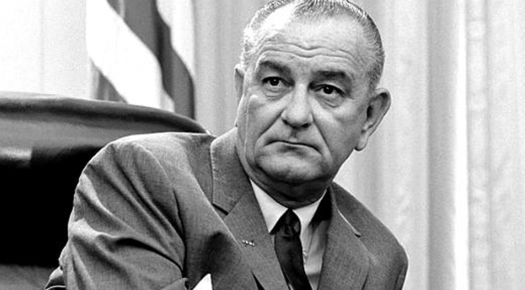
The 1954 Johnson law is part of the federal tax code. It prohibits tax-exempt nonprofit organizations — including churches, synagogues and mosques — from endorsing political candidates and “directly or indirectly” participating in their campaigns. The law was named for then-Senator Lyndon Johnson who introduced the measure as an amendment to the tax code in 1954.
A conservative nonprofit group that wanted to limit the treaty-making ability of the president produced material that called for electing his primary opponent, millionaire rancher-oilman Dudley Dougherty, and defeating Johnson. Johnson was motivated by a desire to exact revenge on the foundation he believed supported his opponent and to prevent it and other nonprofit corporations from acting similarly in the future. There was no church involved. Considered uncontroversial at the time, it was passed by a Republican Congress and signed into law by President Dwight D. Eisenhower, a Republican. Today, however, many Republicans want to repeal it. One of them is certainly new President Donald Trump.
“I will get rid of and totally destroy the Johnson Amendment and allow our representatives of faith to speak freely and without fear of retribution,” President Trump said. “Freedom of religion is a sacred right, but it is under serious threat.” What is the connection between freedom of religion and participating in political life? Religious liberty demands thoughtful separation of church and state, not church involvement in politics. Freedom of religion is not threatened by the Johnson Amendment at all because churches have right to worship however they please. In return for government services for which they do not pay (no income or corporate tax and no property taxes), nonprofit organizations, including churches, have agreed not to engage in politics.
Trump’s plan to destroy the Johnson Amendment could have disastrous consequences for both separation of church and state, and church unity. Letting church be involved in politics blurs boundaries that exist between church and state.
On the other side, churches would become political battlegrounds. In that case, we’d have Republican churches and Democratic churches, and denominations would be fractured further. When churches start funding political campaigns, that activity would further confuse the relationship between politics and faith, which definitely should be separated.
Photo Credits: History.com
